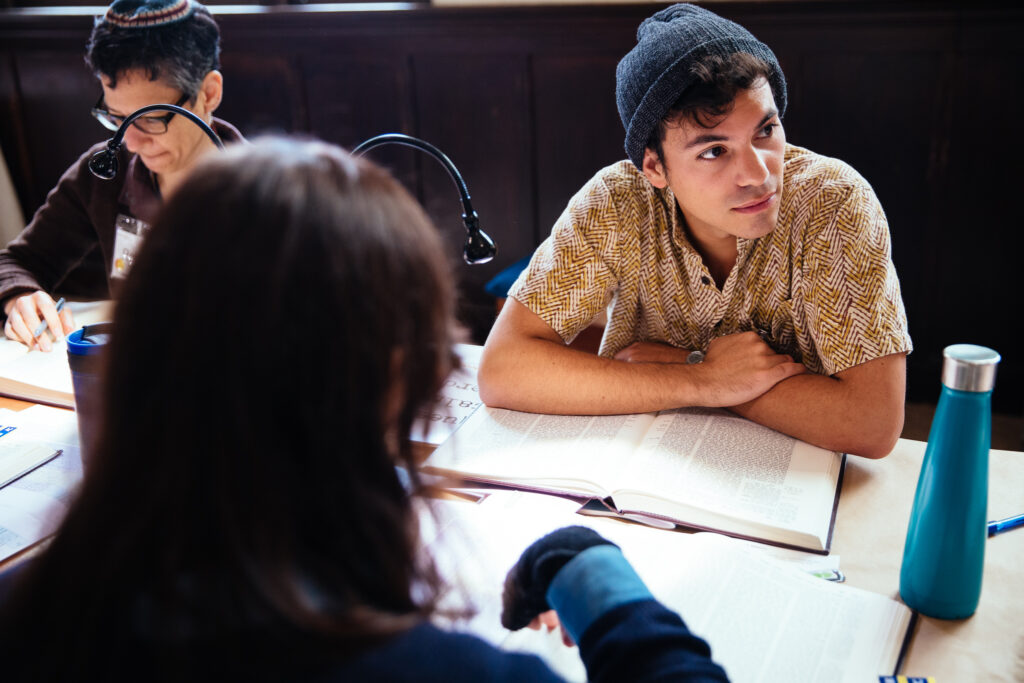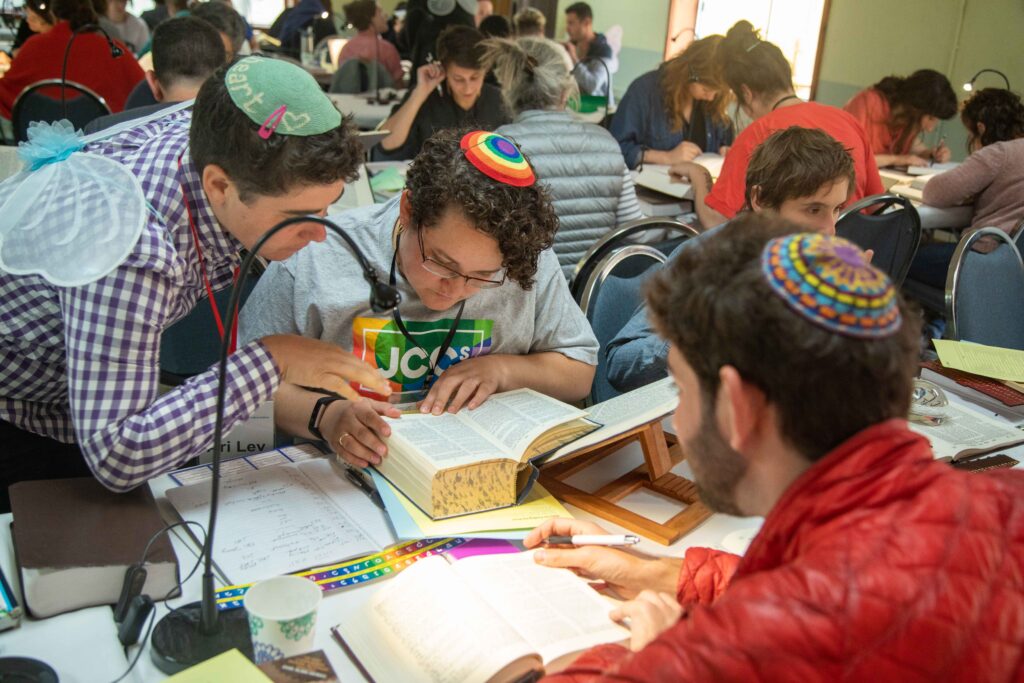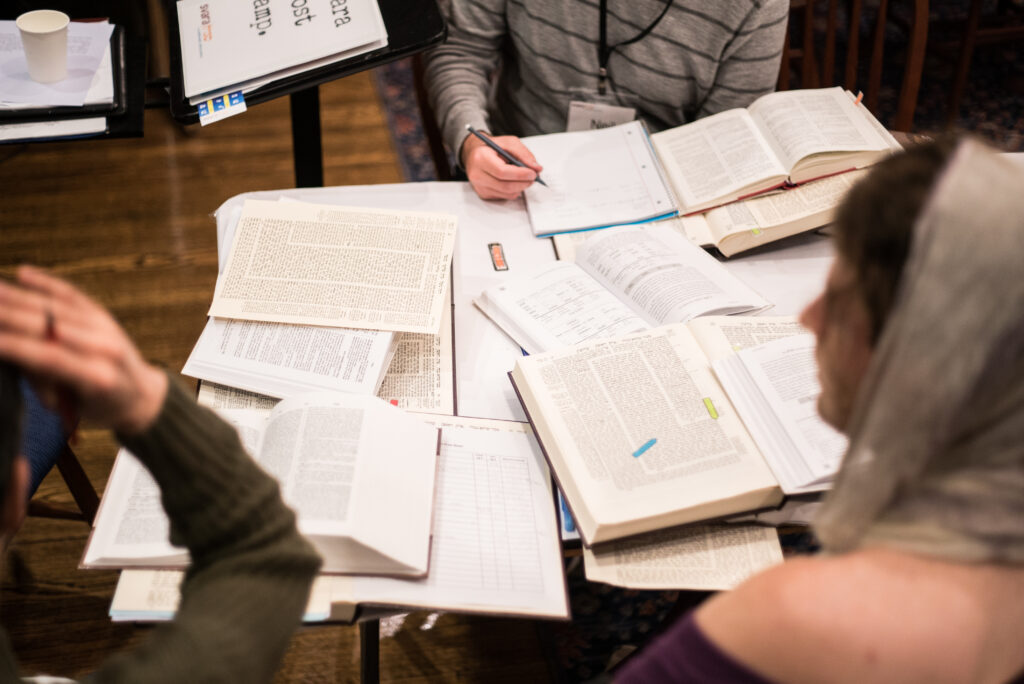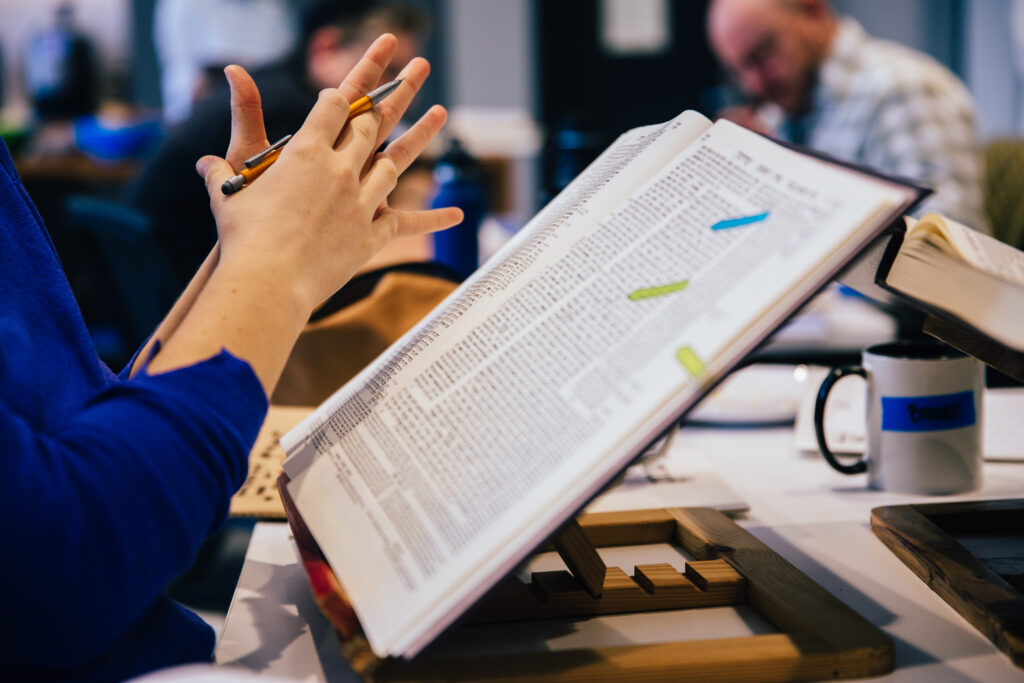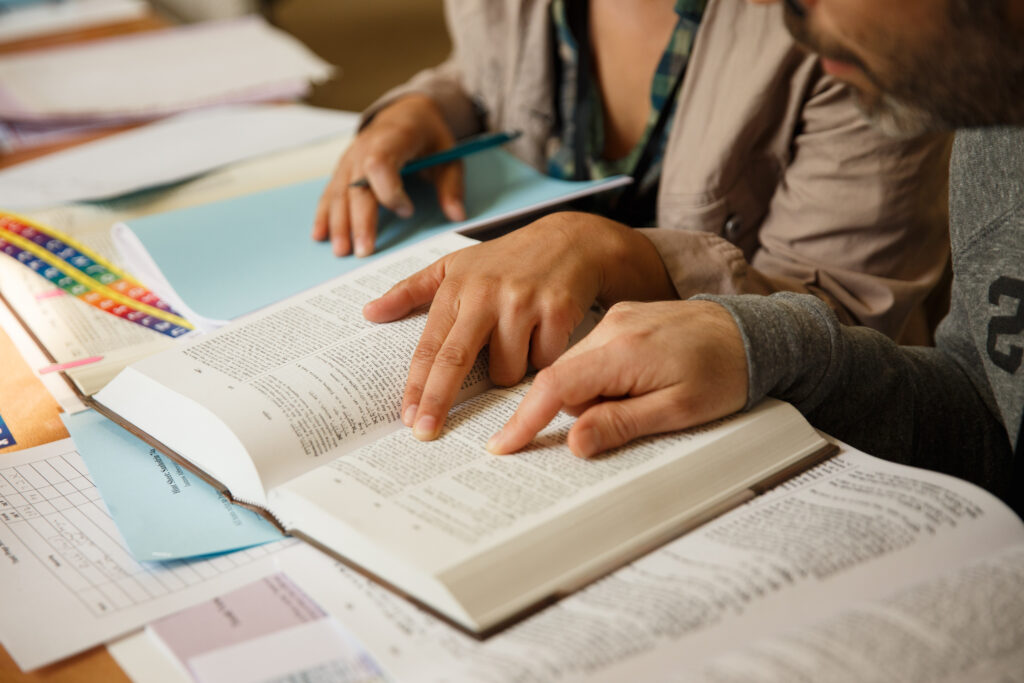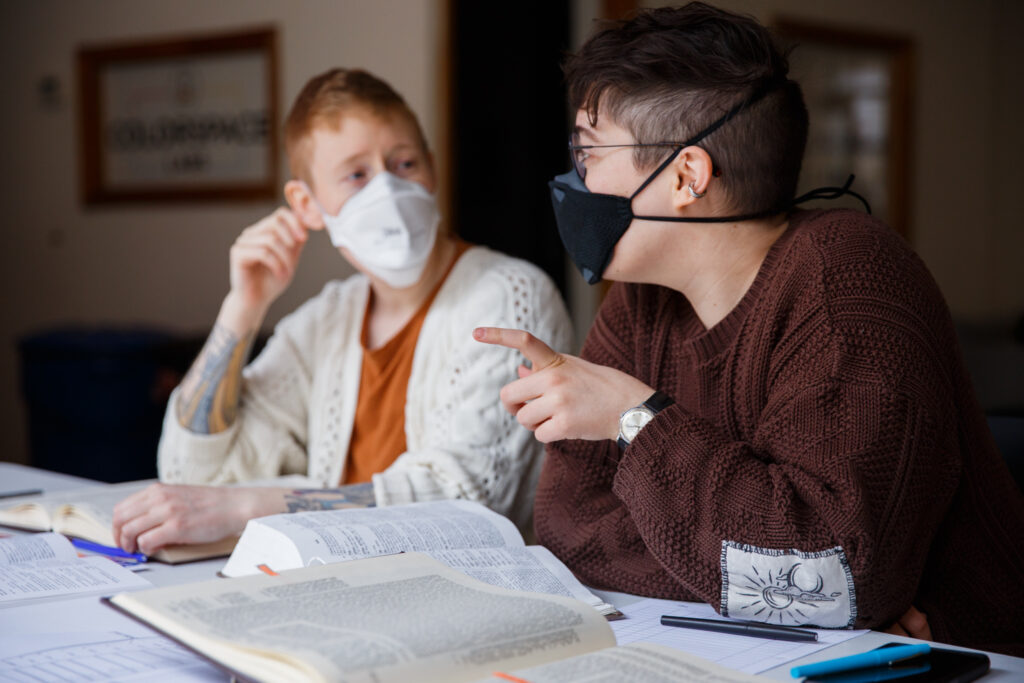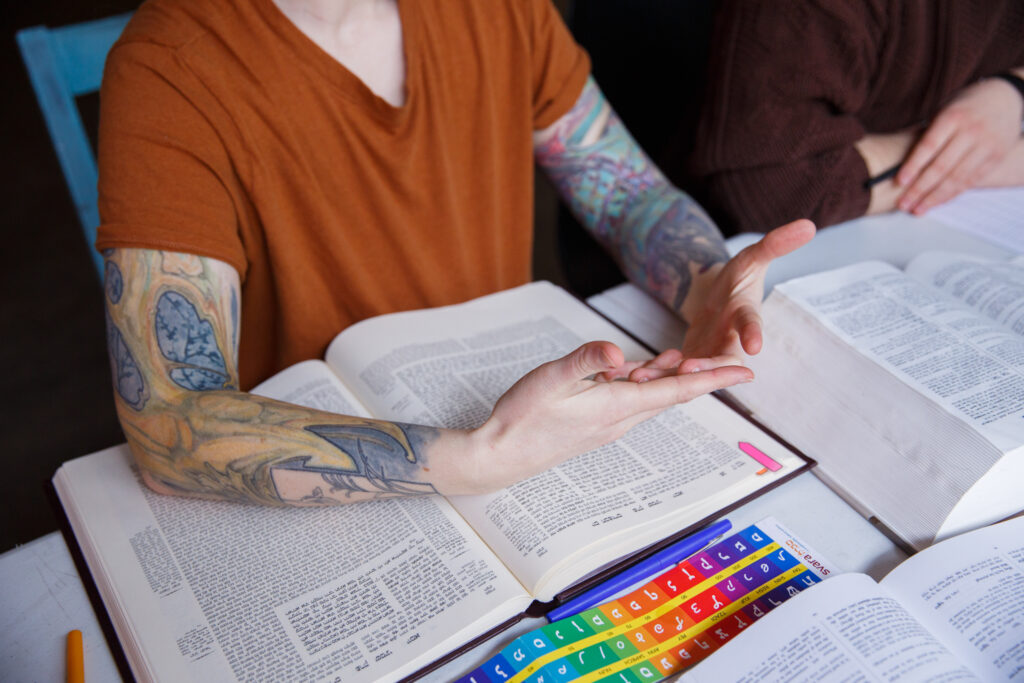A few weeks back, it fell on me to give a benediction at a breakfast for the Boy Scouts of America. (Such are the often strange duties of being a synagogue clergy, ha!) Many of y’all know that the Boy Scouts of America have an unfortunate history of harmfully excluding LGBTQ+ kids and scout leaders; it wasn’t until 2014 that gay and lesbian kids were officially welcomed to join the scouts, and in 2015 openly LGBTQ+ adults were officially welcomed to lead dens. Five years ago, in 2017, trans youth were allowed to join the dens of their preferred gender. This is progress, yes, but it’s painful to imagine how many young people were intentionally cut off from what might otherwise have been a meaningful, coming-of-age experience. And alongside my awareness that the Scouts have been moving towards a more expansive understanding of gender and queerness, there was one thing at the breakfast that made me exquisitely uncomfortable: the patriotism.
When we were asked to stand and recite the pledge of allegiance, it hit me that I had not recited the pledge of allegiance since I was in middle school, when it was required to be said to mark the start of the school day. When the crowd stood and we all began reciting the words, I looked around and realized that I had forgotten the critical piece of choreography: placing your right hand over your heart. The words rolled out of my mouth thanks to muscle memory but once I placed my hand over that tender organ, I really heard what I was vocalizing:
I pledge allegiance to the flag of the United States of America, and to the republic for which it stands, one nation under God, indivisible with liberty and justice for all.
With a hand over my heart, I felt the vibrations of a different set of words ripple through my rib cage. A different kind of muscle memory took over, muscle memory from what I do as a Jew when I place my hand over my heart:
עַל חֵטְא שֶׁחָטָֽאנוּ לְפָנֶֽיךָ
For the sin that we have sinned before you
With every word of the pledge, I felt the urge to pound my chest. Before I knew it I was crying, thinking of the child I was all those years ago who was so naïve about the great evils performed in this country’s name, the thousands of indigenous tribes displaced and slaughtered, entire cultures obliterated for the sake of our independence. Tears streamed down my face for the child who was taught that there was a version of God that would approve of the actions of this country’s forefathers. There were tears too for the ideals of personal and religious freedom that were at the root of the founding of this country. And there were tears of wondering if these ideals can ever be truly redeemed from the trafficking and enslavement of Black people in the name of “freedom.” How can these ideals thrive when historic and contemporary systematic racism is so deeply embedded in this nation’s economy, which has guaranteed it so much independence and dominance on a global stage? And what about the ways that this supposed liberty has been used to justify the cultivation of an individualism-driven gun culture unparalleled anywhere on earth?
As we approach Independence Day, I find myself thinking of this passage from Pirkei Avot, the Chapters of our Forefathers (you know, the queer Talmudic ones) :
שְׁמַעְיָה וְאַבְטַלְיוֹן קִבְּלוּ מֵהֶם. שְׁמַעְיָה אוֹמֵר,
אֱהֹב אֶת הַמְּלָאכָה, וּשְׂנָא אֶת הָרַבָּנוּת, וְאַל תִּתְוַדַּע לָרָשׁוּת
Sh’maya and Avtalyon received it [the tradition] from them. Sh’maya said “Love the work, hate lordship, and don’t become familiar with the government.”
The word translated as “familiar” here is תתודע. It’s a hitpa’el verb, which means it is a reflexive form, and a form which often has a passive sort of feel. The root of the word is י ד ע which means “to know, recognize, find out, point out” and even “to love”. If you’re following along in the Marcus Jastrow Dictionary of the Talmud and Targumim, you’ll see the entry for the hitpa’el form on page 565. There it says the meaning is “to force oneself upon the notice of” or “to pretend friendship for.” We even get a Jastrow Jackpot, which is when the definition includes the text you’re learning. Jastrow hereby translates our passage as “do not make thyself a partisan of the [foreign] government.”
First things first! For a reflexive and often passive verb tense, I was surprised that the meaning seemed so active. To actively force oneself into another’s attention, or actively pretend to be someone’s friend. Furthermore, there’s an assumption in Jastrow that we’re referring to a “foreign” government. This assumption makes sense in the context of Roman-occupied Palestine, where Sh’maya and Avtalyon are hailing from, but the word “foreign” simply isn’t in the text. It’s just “government,” or perhaps closer, “authority” (רשות). This makes me wonder a few things. First of all, in what ways do we “become the notice of the prevailing authority”? Taking a cue from the text, I’m compelled to wonder if this happens passively or actively (or both?). Secondly, as a Diasporic people, what do we make of the difference between “our government” versus a “foreign government”? Do we understand this passage differently when we think of it as a warning of not becoming too familiar with one or the other (or both)?
How exactly do we come to “be known” by authorities? In this age of hyper-digitalized surveillance state capitalism, I think it happens in every moment. We are constantly being “known”, or rather, discovered, surveilled, investigated, categorized, and quantized by various systems of authority, whether that’s the so-called free market or health and tax agencies. Our privacy has become next to naught because of the internet. We have willingly succumbed to the promise of “real interconnection” through social media, and our personal boundaries have become transparent figments of Being that are now just free fodder for superficial entertainment at best and surveillance at worst. Perhaps these could be filed away under “passive” means of being known. There’s another type of passive known-ness, one which our queer Talmud ancestors were deeply concerned about, and that is passively becoming the friend of an authority that maybe doesn’t deserve its authority. I would argue that most closely resembles the passivity of sitting back and drinking in the opiate of normalcy, of Option 1 so-called America.
One can also become “known” by the authorities through more active… well, actions. By being a political dissident, by protesting injustice, by fighting for radical and revolutionary causes. After all, our queer Rabbi ancestors deeply valued and insisted that it was our duty to protest. And this more active approach takes me back to this moment of reciting the pledge of allegiance. Another aspect of the tears in that moment, which I feel embarrassed to say (and even more embarrassed to publish) is that I felt so sad for the ways in which I didn’t feel proud but wanted to feel proud. The reason I didn’t feel proud was because of the deepening awareness that as a white cis-gendered person I’ve benefited from so many oppressive systems, and embarrassed that I felt such a keen longing for a joyful pride, a pride that comes from knowing you’re part of something that is truly for the greater good. Of course this country has taken steps to strengthen systems that pioneer many of the human freedoms that are lauded and revered around the world, but we’ve fallen so very short in so many ways and still have much to contend with and repair from our cruel and brutal history. By understanding “the authority” (רשות) to be our own government and not a foreign government is a reminder to not lose that sense of genuine longing for just and rightful authority, and to take up our responsibility in shaping that authority as it could be and not settling for what it currently is. With so much swirling in my mind, with so many things to contend with, perhaps y’all are curious about the benediction I ended up giving. Here it is:
Yehi Ratzon Milfanecha, Ruach HaOlam, Ruach Kol Chayyim
May it be Your Will, Spirit of the World, Breath of All Life, that these scouts continue to be strengthened by the core depths of their practice and duty: integrity, respect, care, belief, and cooperation. As you infuse all being with sacred purpose, so too may all the actions of these youths, their leaders, supporters, friends and mentors, bring forth a manifestation of their highest principles, being trustworthy, loyal, helpful, friendly, courteous, kind, obedient, cheerful, thrifty, brave, clean, and reverent. May You bless the work of their hands and the devotion of their hearts. May You guide their feet and enliven their confidence and inner fortitude to know that they can guide themselves on the right path. Make them independent and strong, Avinu She’bah’Shemayim, Heavenly Parent, but allow their hearts to remain soft such that tenderness and compassion will be the light that shines forth from them in an ever increasingly darkened world. Let these scouts continue to model true bravery—commitment to their fellows and to themselves through these noble aspirations. May we come to know through them the truth of the words of Rabbi Nachman of Breslov—Kol ha’Olam kulo Gesher Tzar Me’od; v’ha’ikar loh lephacheyd klal—the whole world is a very narrow bridge but the most important thing is to not be afraid. Dear Source, let them not shun fear, but let their bright countenances be a source of hope, optimism, resilience, skill and joy, now and always. And let us say: AMEN.
I hope the wisdom of our ancestors will guide us to create an independence that would truly be worthy of being in G!D’s presence. On this approaching Independence Day, may we be reminded that our queer Talmudic ancestors gave us spiritual nourishment for living in diaspora. They gave us the tools to build connections between different movements for true independence and liberation. And they gave us rich and complicated words to locate ourselves and each other again and again in the pursuit of truth and justice. May we find our way back to these words when other words fall short.

